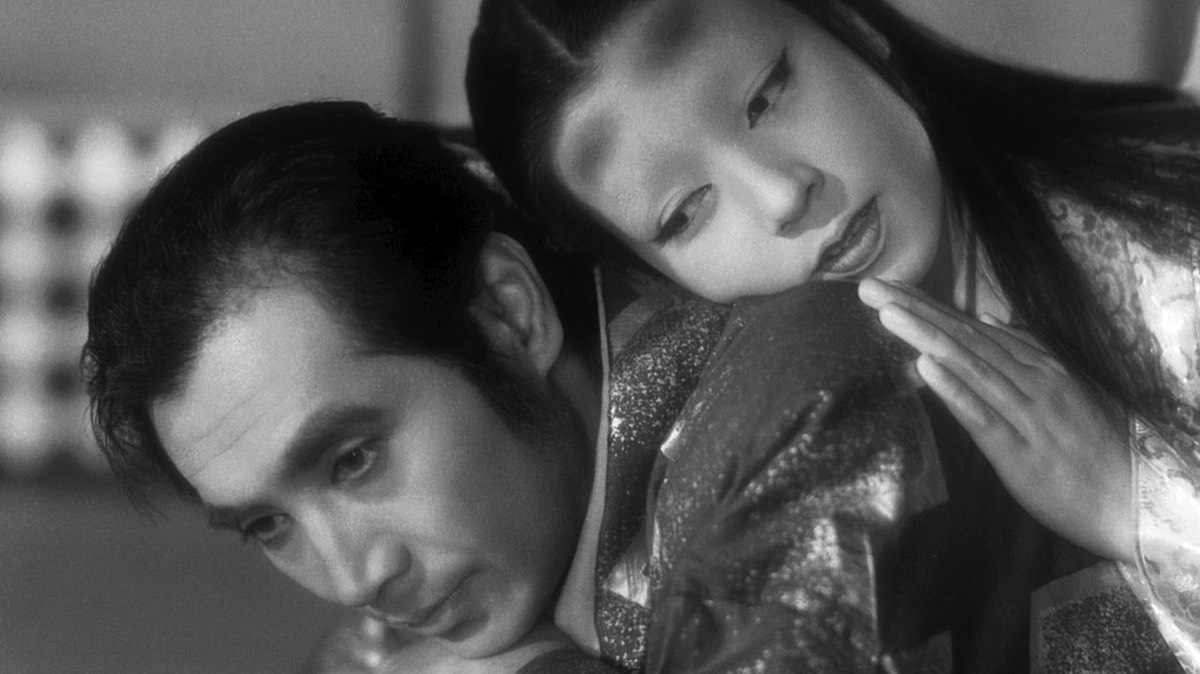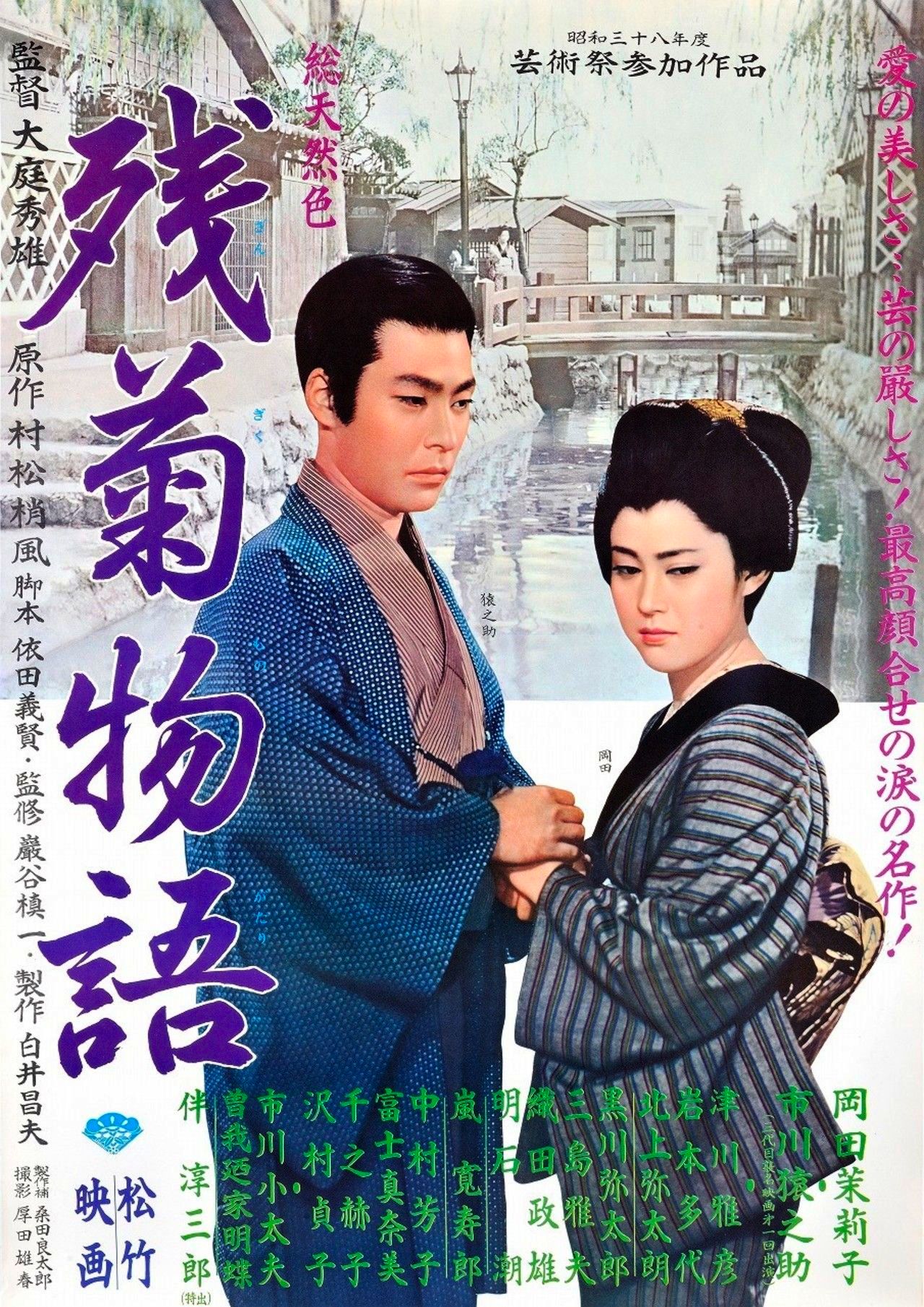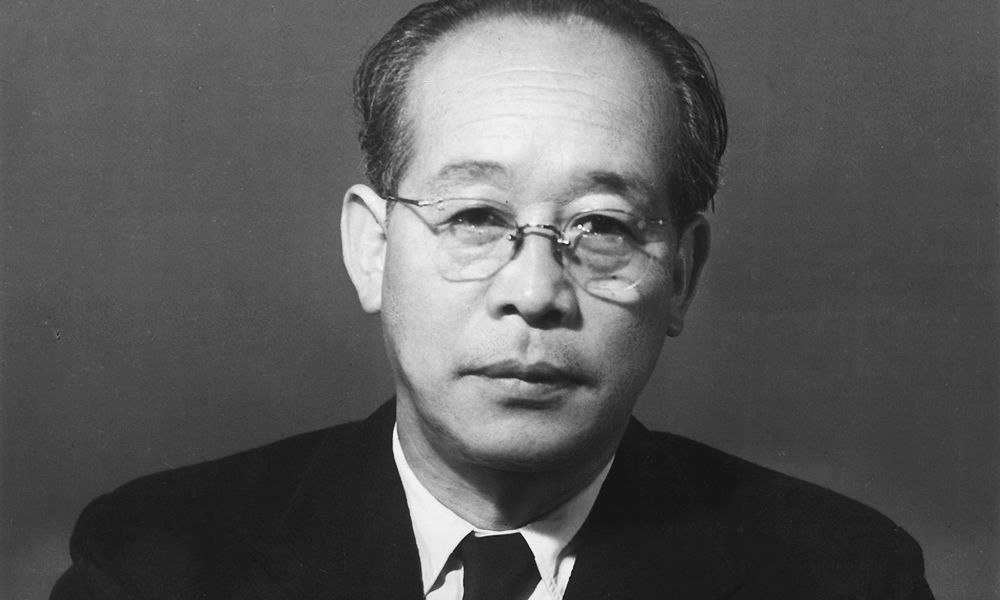"The historical settings, fragile grace and quiet lyricism of Mizoguchi's films cannot conceal their carefully controlled anger, and their pertinence to 20th-century life. It is to his eternal credit, however, that they emerge less as socio-political tracts than as emotionally moving, dramatically refined works of art." - Geoff Andrew (The Film Handbook, 1989)
Kenji Mizoguchi
Key Production Country: Japan
Key Genres: Drama, Period Film, Melodrama, Historical Film, Samurai Film, Urban Drama, Romance, Romantic Drama, Historical Epic
Key Collaborators: Yoshikata Yoda (Screenwriter), Hiroshi Mizutani (Production Designer), Eitaro Shindo (Character Actor), Kinuyo Tanaka (Leading Actress), Masaichi Nagata (Producer), Kazuo Miyagawa (Cinematographer), Fumio Hayasaka (Composer), Minoru Miki (Cinematographer), Ichiro Sugai (Character Actor), Matsutarô Kawaguchi (Screenwriter), Kôhei Sugiyama (Cinematographer), Yoko Umemura (Leading Character Actress)
Key Genres: Drama, Period Film, Melodrama, Historical Film, Samurai Film, Urban Drama, Romance, Romantic Drama, Historical Epic
Key Collaborators: Yoshikata Yoda (Screenwriter), Hiroshi Mizutani (Production Designer), Eitaro Shindo (Character Actor), Kinuyo Tanaka (Leading Actress), Masaichi Nagata (Producer), Kazuo Miyagawa (Cinematographer), Fumio Hayasaka (Composer), Minoru Miki (Cinematographer), Ichiro Sugai (Character Actor), Matsutarô Kawaguchi (Screenwriter), Kôhei Sugiyama (Cinematographer), Yoko Umemura (Leading Character Actress)
"One of the most acclaimed directors of world cinema, Kenji Mizoguchi created elegant, precisely staged long takes in films that examined the circumscribed choices of women in Japanese society. His tightly controlled camera movement, recessed foregrounds, and depth staging served to subordinate characters to the overall composition, positioning the viewer as an observer to highly emotional yet distanced subject matter… Although Mizoguchi’s aesthetic of long-shot long takes tends to de-center characters within the frame and de-dramatize action, his use of camera movement encourages more active participation by the viewer." - Lisa Dombrowski (Schirmer Encyclopedia of Film, 2007)
"His main theme was the social condition of the Japanese woman and her role in a society polarized between traditional and modernizing forces. His interest in and profound understanding of female psychology are consistent features of his films." - The Macmillan International Film Encyclopedia, 1994

Ugetsu monogatari (1953)
"He excelled at period films, but he was equally interested in modern stories. He has no superior at the unfolding of narrative by way of camera movement, and he was a great director of actresses - notably Isuzu, Yamada, Kinuyo Tanaka, and Machiko Kyo. Ugetsu monogatari is probably the Mizoguchi seen by most cinema-goers - and it is enough to sustain his reputation." - David Thomson (The New Biographical Dictionary of Film, 2002)
"A profound influence on the New Wave directors, Mizoguchi continues to fascinate those in the forefront of the art (Godard, Straub, Rivette). A passionate but contemplative artist, struggling with issues crucial to cinema and society, Mizoguchi will continue to reward anyone who looks closely at his films. His awesome talent, self-discipline, and productivity guarantee this." - Dudley Andrew (The St. James Film Directors Encyclopedia, 1998)
"If Mizoguchi captivates us, it is because he never sets out deliberately to do so and never takes sides with the spectator. He seems to be the only Japanese director who is completely Japanese and yet is also the only one that achieves a true universality, that of an individual." - Jacques Rivette
"Mizoguchi is undeniably the master of the sequence shot. Like Miklós Jancsó and Béla Tarr after him, he is one of cinema's finest choreographers of camera. The director often limited himself to one shot per scene: an elegant, hypnotic glide on a track or crane, while maintaining a tactful distance from the overheated melodrama, like a Japanese scroll painting." - Lloyd Hughes (The Rough Guide to Film, 2007)
"A premier director of women who explored the psychology of females and their roles in Japanese society." - William R. Meyer (The Film Buff's Catalog, 1978)
Selected Filmography
{{row.titlelong}}
Kenji Mizoguchi / Fan Club
Rogério Sganzerla, Jonathan Rosenbaum, John Davies, Tony Rayns, Michel Ciment, Derek Malcolm, Miguel Marías, José Luis Guarner, Robbie Collin, Bertrand Tavernier, Andrew Sarris, Tadao Sato.
Rogério Sganzerla, Jonathan Rosenbaum, John Davies, Tony Rayns, Michel Ciment, Derek Malcolm, Miguel Marías, José Luis Guarner, Robbie Collin, Bertrand Tavernier, Andrew Sarris, Tadao Sato.
"Fan Club"
These film critics/filmmakers have, on multiple occasions, selected this director’s work within film ballots/lists that they have submitted.
These film critics/filmmakers have, on multiple occasions, selected this director’s work within film ballots/lists that they have submitted.


